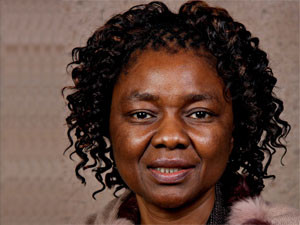
South African teachers need further training and development to be competent users of technology devices, to assist school children to use these resources in innovative ways, says deputy minister in the Department of Telecommunications and Postal Services (DTPS), Hlengiwe Mkhize.
According to Mkhize, a learner's ability to gain access and understand digital content will depend on the teacher being comfortable with using technology devices in the classroom.
"Teachers that are intimidated by technology will never use them; they will hold on to the traditional ways of teaching and make children nervous," she says.
Moira De Roche, MD of e-learning company Aligned4Learning, says: "These are not difficult skills to learn...Digital skills cannot be optional. Before the digital age, we would not have attempted to train teachers who could not read or write. In the second decade of the new millennium, a teacher without digital skills is as illiterate."
State of affairs
South Africa has one of the most underperforming school systems in the world. The latest World Economic Forum Global Competitiveness report for 2015-2016 shows the country ranked 138 out 140 countries for the overall quality of the education system. SA's quality of maths and science education is also ranked last among 140 nations.
Government has made attempts to support an ICT curriculum by rolling out various initiatives; however, these have either stalled or fallen by the wayside. Projects such as the One Laptop Per Child and the Teacher Laptop Initiative have failed to take off, which means the education system remains disadvantaged.
Through SA Connect, the country's broadband policy, the DTPS must deliver broadband services to all public schools and provide devices to all learners by 2020.
Core issues
Mkhize says connectivity without teacher enrichment and empowerment in using ICT in education is futile.
"A teacher might have a desktop, an iPad, a laptop or even a mobile phone connected to 2G or 3G but if they are not trained on the benefits of using those devices... the computer will just be used for typing."
Mkhize states government must first prioritise teacher training and development to address the ICT skills deficit in education.
De Roche notes the issue is more than training and development, it is about changing the hearts and minds of teachers as well as that of the Department of Education.
"I understand that the unionised teacher environment makes it difficult to enforce retraining, but I do think it has a lot to do with political will," she says.
Gabrielle Wills, researcher with the Research in Social and Economic Policy at Stellenbosch University, says although teacher training is important, there are many other issues of basic functionality that must first be addressed.
"We are not using what resources we have effectively, whether in the form of physical or human resources, which includes teachers," says Wills.
Willing participants
De Roche says, although training will make teachers feel more comfortable to use technology in the classroom, they still have to want to embrace technology.
According to Mkhize, the Department of Basic Education (DBE), which is the highest beneficiary of the country's budget, must run training and development workshops to ensure teachers are competent and confident in using ICTs at schools.
"I don't think we are seeing the results, especially when you look at the number of people who finish school and are absorbed by the private sector. Clearly the game-changer is the ability for the teacher to use these devices in a creative and innovative way," states Mkhize.
De Roche says it is the DBE's responsibility to ensure teachers receive adequate training and development to use tech resources.
The DBE failed to respond to ITWeb's questions by the time of publication.
Share